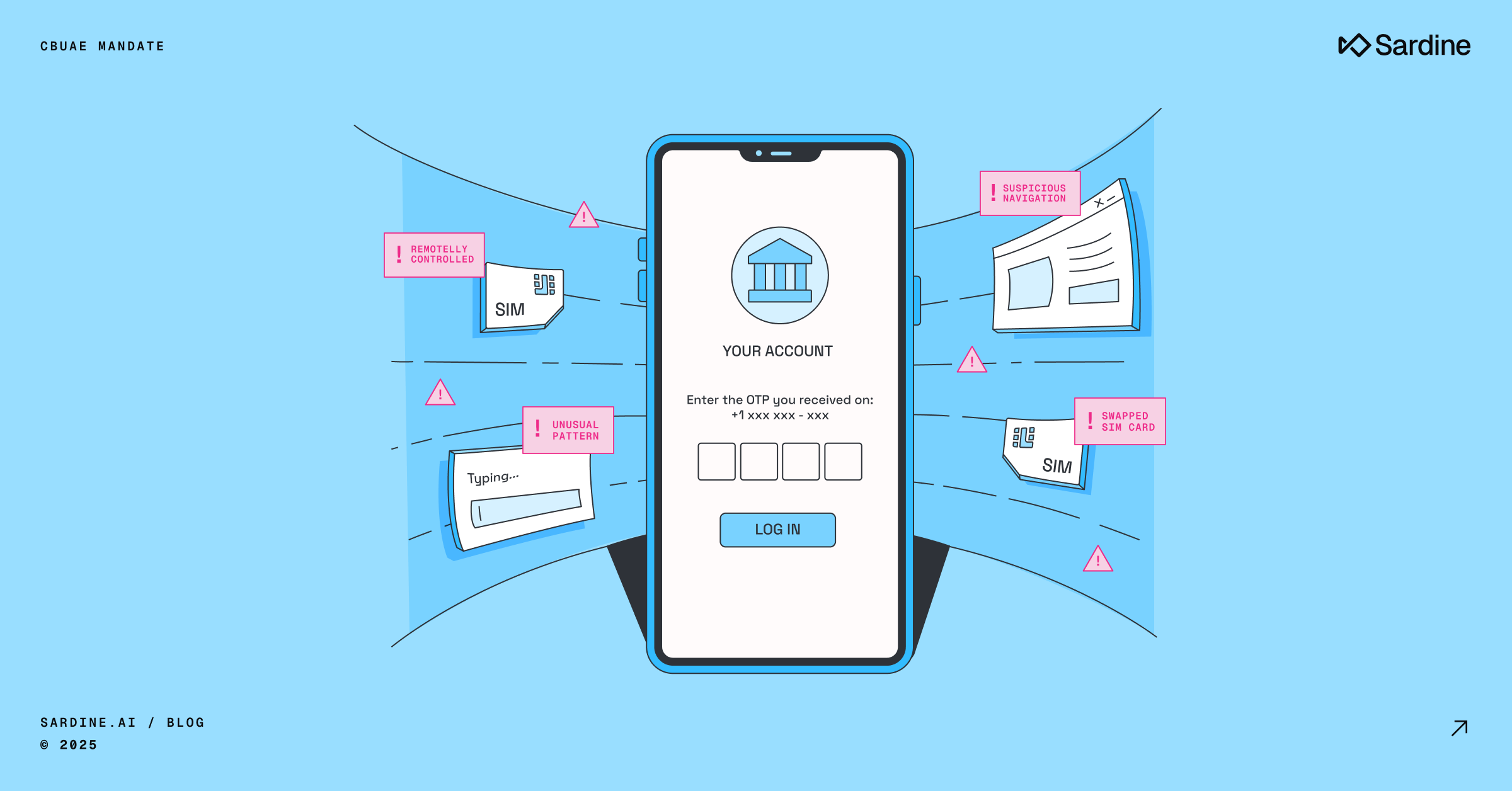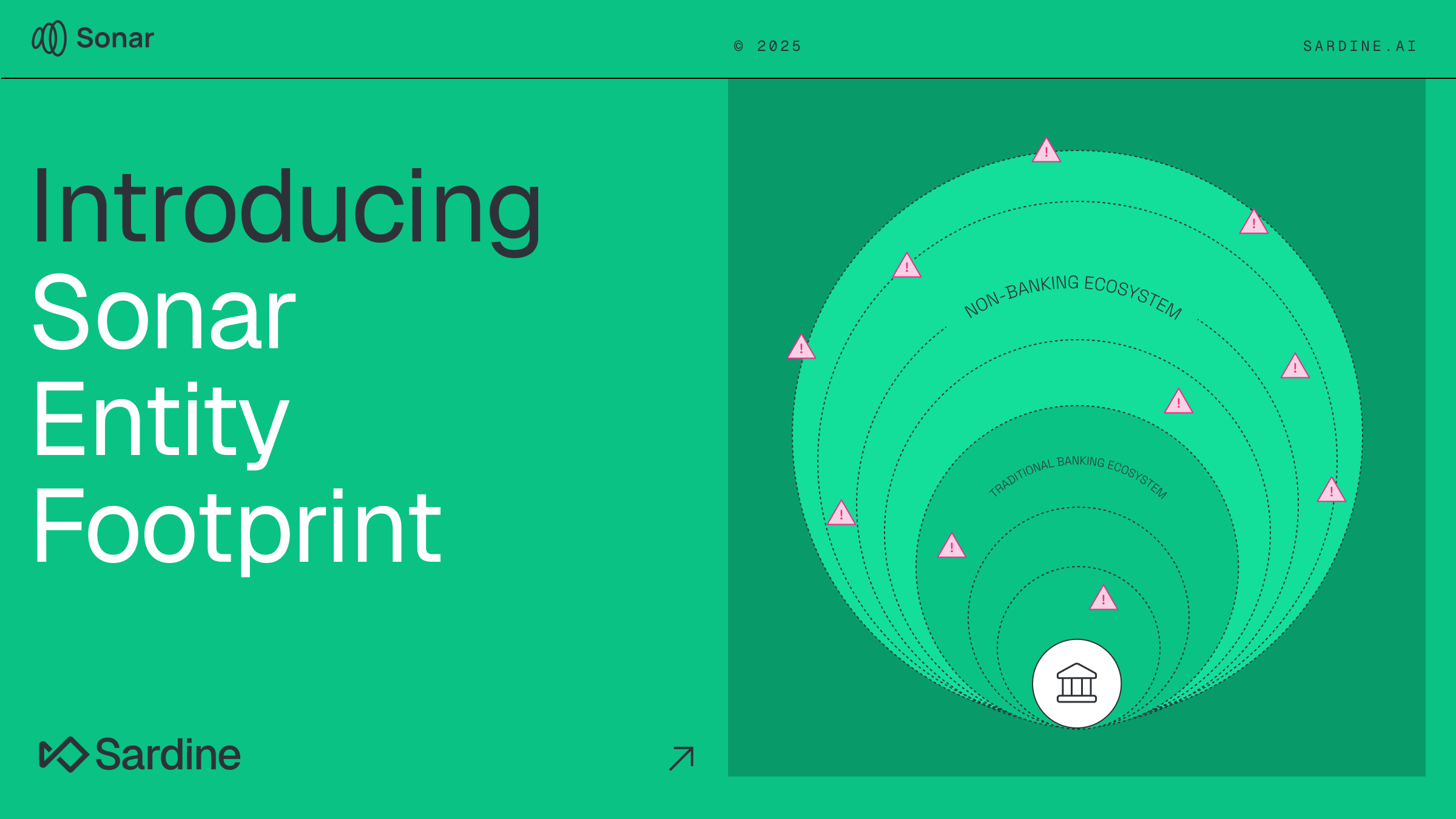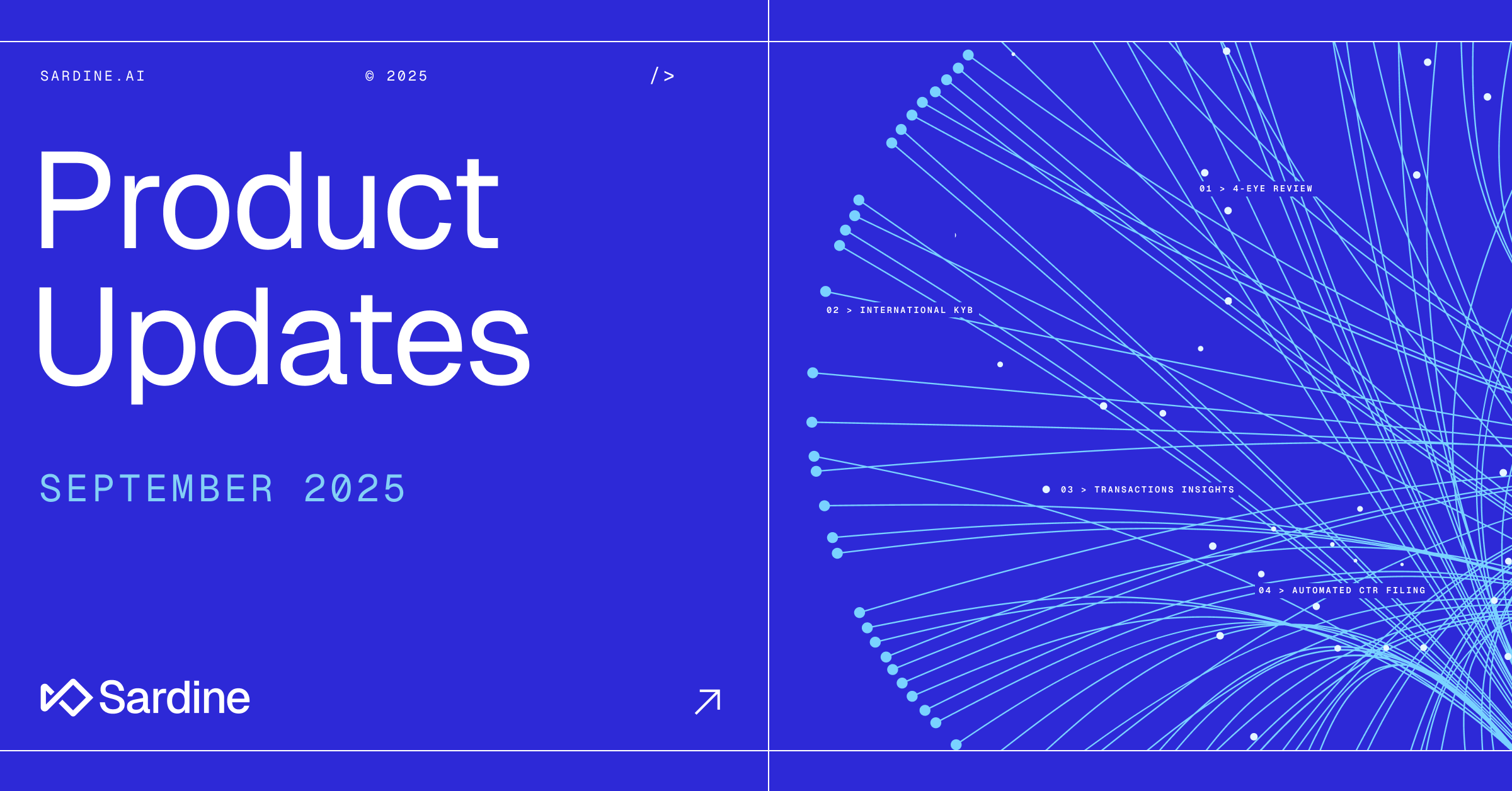Automate enhanced due diligence checks with Sardine
For most compliance teams, Enhanced Due Diligence (EDD) is where everything slows down.
You’re under pressure to move fast: onboard customers quickly, stay compliant with FinCEN and OFAC regulations, and manage a growing volume of alerts. But when high-risk signals are triggered, your team often grinds to a halt. EDD cases pile up. Manual reviews stretch into days. Legitimate customers face delays, and risky ones sometimes slip through the cracks.
Worse still, initiating EDD is often a manual process itself. Flagged by an analyst, pushed to another queue, followed by document collection, identity verification, and sanctions screening. It’s operational glue. And it's draining your team’s time, budget, and morale.
This is where automation steps in.
With Sardine, you can automatically queue users for EDD, collect and verify step-up KYC documents, and screen data with AI-powered agents—all without slowing down onboarding. That means less backlog, fewer false positives, and more time for your team to focus on real risk, not paperwork.
Here’s how it works. 👇
Refresher: What is Enhanced Due Diligence
First, a quick refresher on EDD.
Enhanced Due Diligence (EDD) occurs when a financial institution or company needs to gather additional information or intelligence about a high-risk customer. It is used in high-risk scenarios where standard Customer Due Diligence (CDD) isn’t enough.
Regulatory bodies like the Financial Crimes Enforcement Network (FinCen) expect organisations to understand the nature and purpose of their customer relationships for high-risk customers.
To meet this expectation, Financial Institutions (FIs) must design and maintain an EDD policy that provides the compliance team with practical guidelines on managing these higher-risk scenarios, such as money laundering or terrorism financing.
Enhanced due diligence has become the primary line of defence for compliance officers when faced with high-risk clients, but it is often manual, slow, and causes significant friction for good customers.
Defining an Enhanced Due Diligence Policy
When higher-risk clients such as Politically Exposed Persons (PEPs) or cash-intensive businesses are identified during routine CDD checks, they are escalated for EDD review.
Defining an enhanced due diligence policy typically involves
- Setting risk thresholds
- Establishing escalation triggers
- and determining which clients or transactions require more detailed scrutiny.
However, many businesses still rely on manual processes for EDD, where a human operator sifts through databases, watchlists, and piles of documents to assess the risk profile of each relationship.
These manual reviews clog up workflows, saturate compliance teams, and create delays.
When overwhelmed with manual work, critical red flags can slip through the cracks or manual oversight, leaving institutions vulnerable. Growing backlogs of EDD cases can impact onboarding efficiency and draw regulatory attention, for example, at Danske Bank in 2017, when over EUR 200 billion in suspicious transactions slipped through manual checks, leading to a USD 2 billion fine, becoming the most severe case of money laundering in European banking history.
Automation can prevent this type of expensive error.
Automating the initiation screening step allows systems to autonomously identify, prioritise, and queue high-risk cases for enhanced due diligence, eliminating delays and the risk of missed red flags.
Automating the next layer, step-up KYC procedures, could save time, money, and increase customer onboarding conversion.
Advanced systems like Sardine’s latest compliance product update create specific rules and conditions that trigger enhanced due diligence checks and have cut customer backlogs from upwards of 22 days, down to 2 minutes in some scenarios.
Automating Step-Up Authentication Workflows and Checks Makes Onboarding Faster and Increases Compliance
Whenever an alert is triggered for a potential high-risk customer, the most common next step is “step-up KYC.” This process involves collecting documentary KYC information and checking that against numerous watch lists, risk signals ,and 3rd party data sources.
This can be automated to:
- Automatically add a user to an EDD queue
- Automatically request that the user provide additional step-up KYC data
- With AI Agents, automatically review the documentary KYC information to screen for false positives (such as name mismatches, common names, cultural variations etc).
To show how this works in practice, imagine a Cuban American living in Miami, accessing their banking services:
- On their return trip from Cuba, this customer triggers compliance alerts due to U.S. sanctions.
- Rather than immediately blocking access or causing unnecessary friction, Sardine assesses the situation in real-time and adds the user to an EDD queue.
- The system needs a quick biometric scan or ID check to unlock the user from this queue to confirm the individual's identity without disrupting their experience.
If a user’s behaviour suddenly shifts - an unusual login from a risky device or location - these systems can trigger stronger authentication measures, ensuring the transaction isn't quicksand for potential fraud.
The key features and processes you need are to:
- Trigger a user to be added to an EDD Queue automatically. Sardine’s Smart KYC and KYB stop fraud and criminals at the gate by automatically adding the user to a queue for step-up KYC
- Collect additional step-up KYC data digitally. From here on, the KYC and KYB solution can collect additional documentary KYC and KYB information. Including selfie liveness checks, adding layers of security without compromising efficiency.
- Detect VPNs or proxies to determine True Location. These services are often used to sidestep sanctions checks and manage the inconvenience. Sardine identifies a device's True Location and True IP addresses, ensuring this cannot happen.
- Use AI Agents to review step-up KYC/KYB information. Sardine’s AI Agents can review watch lists, sanctions lists, 3rd party data (such as telco, email, bank consortia) alongside the collected documentary KYC data to filter out false positives. In testing we’ve achieved 100% accuracy in false positive detection with AI Agents.
Enhanced Due Diligence Automation
Manual enhanced due diligence can quickly overwhelm already stretched compliance teams.
FIs should focus on nimble, results-driven approaches like enhanced due diligence automation, which reduce friction and tackle financial crime head-on.
Enhanced due diligence automation, combined with simple, digital step-up KYC and KYB, automates manual work and makes the customer experience as frictionless as possible. Advanced user device screening helps identify when a VPN or proxy is masking a user's true location.
Sardine offers a single platform that streamlines compliance processes.
It consolidates customer identification, AML monitoring, case management, and reporting within a single interface and data set.
If this sounds like a better solution than manual work, get in touch with us.
We’re excited to show you what we’ve built.
Oh and by the way 👇
Our Customer Identification Program provides KYC and KYB checks while simultaneously ensuring thorough CDD and EDD protocols. Sardine also supports both real-time and batch transaction monitoring, with 500+ pre-built rules that quickly flag suspicious activities.



%20(1).png)








